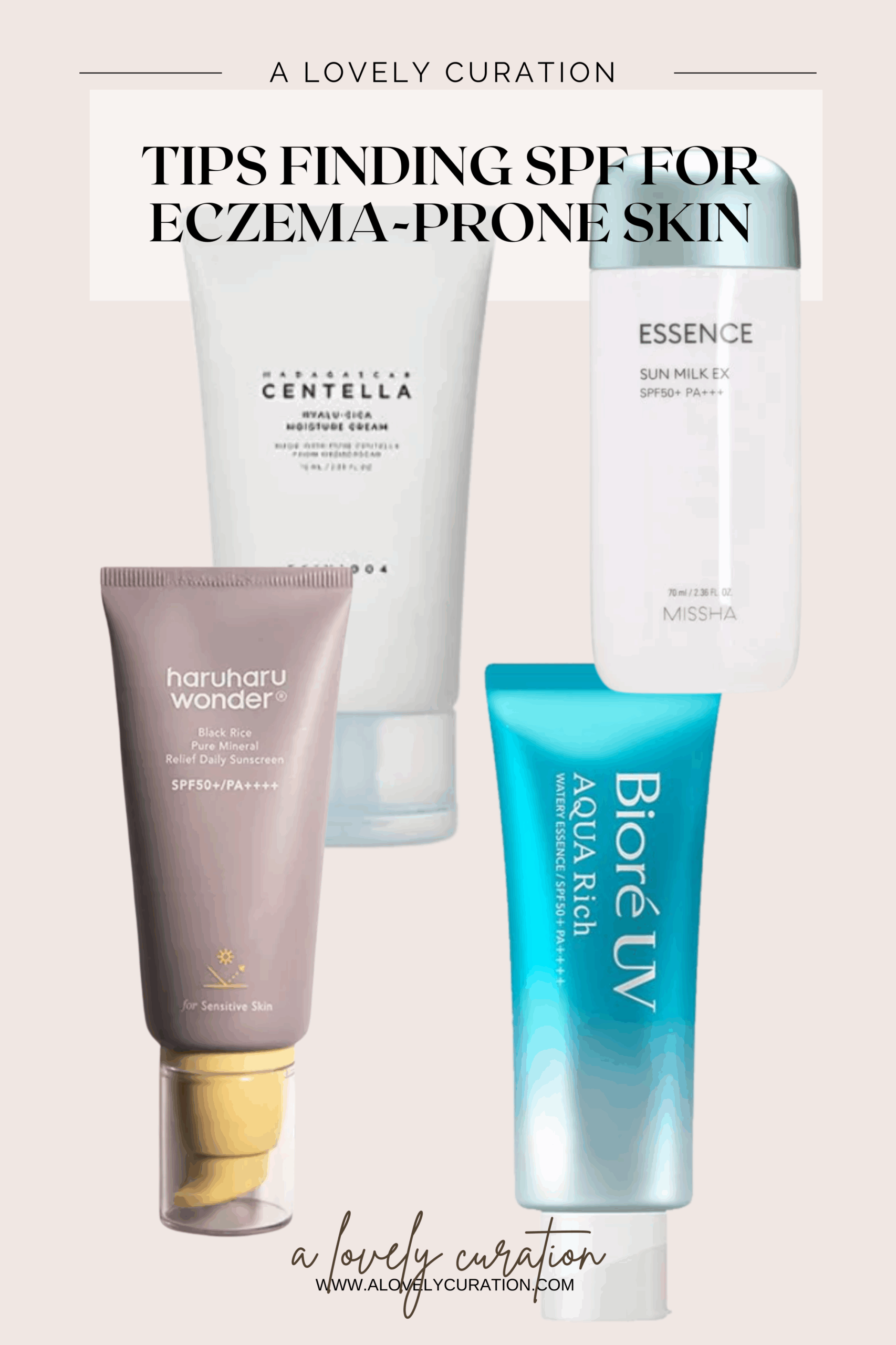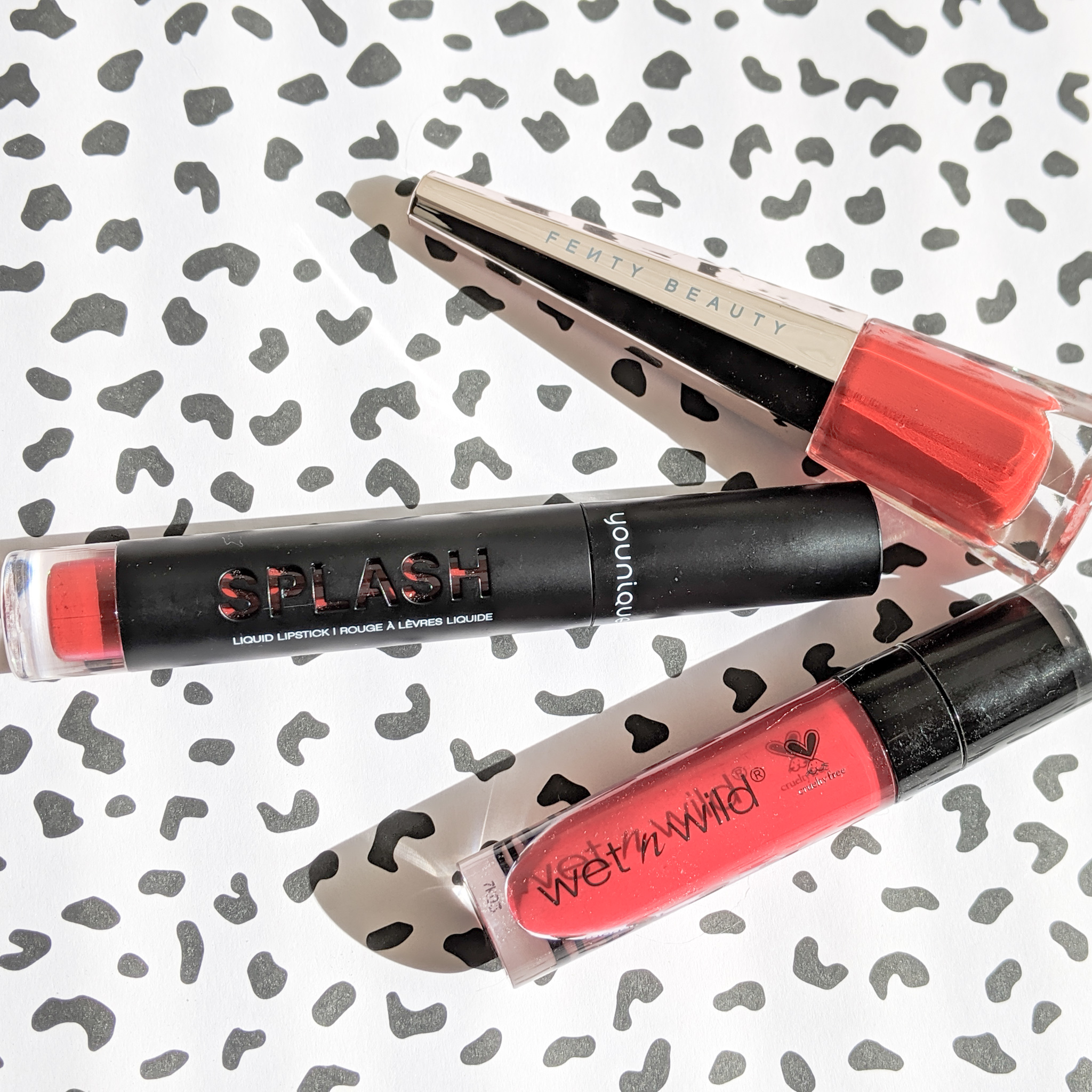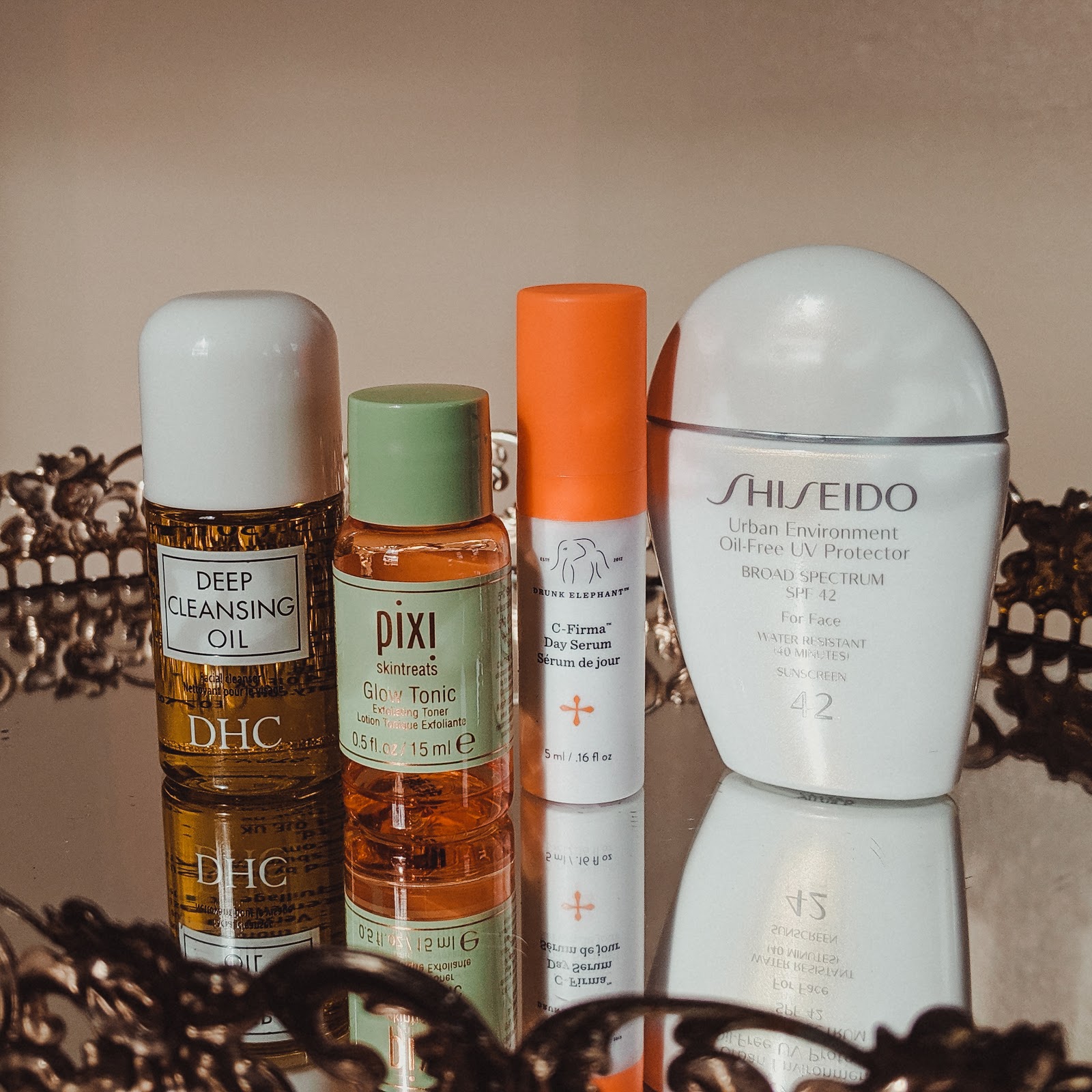Mineral vs. Chemical Sunscreen: What’s the Difference and Which Better?
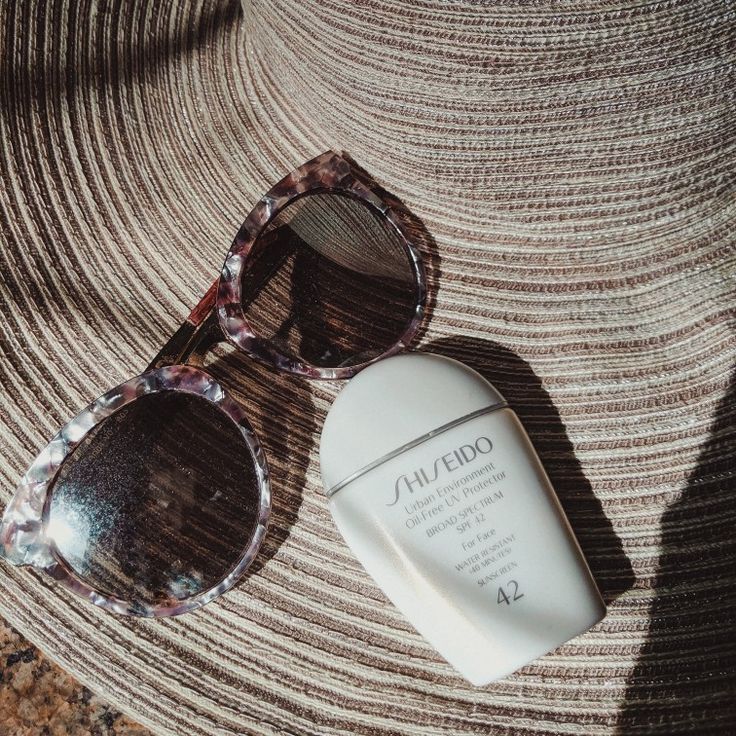
When it comes to sun protection, choosing the right sunscreen is one of the most important steps you can take for healthy, glowing skin. But with so many options on the shelf, it can be hard to know where to start—especially when you’re faced with the choice between mineral vs. chemical sunscreen. In this post, we’re breaking down the differences, pros, and cons of each type to help you find the best fit for your skin, your lifestyle, and your little ones too. Whether you’re prepping for sunny park days or layering under everyday makeup, we’ve got you covered.
What Is Mineral Sunscreen?
Mineral sunscreens, also known as physical sunscreens, contain natural minerals like zinc oxide and titanium dioxide, which act as a physical barrier to reflect UV rays away from the skin. Both active ingredients work by sitting on top of the skin and reflecting UV rays from the sun. are ideal for people with sensitive skin because they are less likely to cause irritation or allergic reactions. Effective immediately upon application, these sunscreens are ideal for people who need quick sun protection as they head out the door while minimizing irritation. Mineral sunscreens can be found in the form of creams and sticks, and there are also tinted versions. However, mineral sunscreens can be thick and leave a white cast on the skin, which can be unappealing for some.
My Favorites
What is Chemical Sunscreen?
Chemical sunscreens, on the other hand, contain compounds such as avobenzone, oxybenzone, octinoxate, homosalate, and octisalate which work by absorbing UV rays and converting them into heat, which is then released from the skin. Chemical sunscreens tend to be more lightweight and easier to apply than mineral sunscreens, but they can cause skin irritation or allergic reactions in those with sensitive skin. These are often found in sheer formulas with a more liquid consistency. Another note: they need time to be absorbed into the skin to become effective, so apply it 20 minutes before you head out into the sun.
My Favorites
Mineral vs Chemical Sunscreen
Ok, that’s a lot of information on both mineral and chemical sunscreens. They provide protection from the sun’s harmful UV rays. How are they different? mineral sunscreens deflect UV rays away from the skin, while chemical sunscreens absorb UV rays and convert them into heat. Pick and choose which one works for you; however, people who have more sensitive skin gravitate towards mineral sunscreen while chemical sunscreens are lighter and easier to apply.
Another difference between mineral and chemical sunscreens is the time it takes for the sunscreen to become effective. mineral sunscreens are effective immediately upon application, while chemical sunscreens need to be absorbed into the skin for at least 20 minutes to become effective.
Why the difference in absorption? The difference between mineral and chemical sunscreen and the time it takes is due to the ingredients. Mineral sunscreens contain zinc oxide or titanium dioxide which sit on top of the skin, while chemical sunscreens contain avobenzone or oxybenzone, and those active ingredients absorb into the skin.
How do you know which to pick? Ultimately, the choice between physical and chemical sunscreens comes down to your personal preference and skin type. You may prefer mineral sunscreens because of sensitive skin while others cut easy-to-apply options that chemical sunscreens offer. Regardless of which type of sunscreen you choose, mineral or chemical, it’s essential to wear sunscreen every day and reapply every 2 hours to protect your skin from the sun’s harmful rays.
Pros and Cons of Mineral and Chemical Sunscreens
Mineral Sunscreen Pros
Besides the benefits of preventing fine lines and skin cancer, there are a few pros of mineral sunscreens. For one, these are great for eczema-prone or sensitive skin, so if you find your skin getting irritated when putting on sunscreen, use this. These start working immediately, so slap some on and head out the door. I typically use this for my toddler. Overall you can’t go wrong with using mineral sunscreen, especially if you have sensitive skin.
Mineral Sunscreen Cons
These tend to have a thicker, so it may take a little longer to apply. If you’ve purchased a sunscreen that’s thick, it’s better to apply this in layers to allow some of the product to absorb into the skin. Apart from the thicker consistency, a few of these mineral sunscreens have a white cast. Don’t know what it is? It’s that ghostly appearance you get when you use sunscreen. This makes it more difficult when applying makeup afterwards because I find that makeup sits right on top of the skin instead of really absorbing into it. And if you’re not careful, mineral sunscreens can also make you look like a 90’s lifeguard at your neighborhood pool. Luckily, there are quite a few mineral sunscreens that have minimal to no white cast.
Chemical Sunscreen Pros
Chemical Sunscreens have made a breakthrough in the skincare market, especially because they are lighter weight which makes it feel as though you don’t have any SPF on at all. Moreso, another pro of chemical sunscreens is that some of them come tinted (perfect for those Moms who are constantly on the go).
The other plus to chemical sunscreens is that it doesn’t leave that white cast on your face, making it easier to apply makeup without it looking cakey or weird in pictures. In all, you can’t go wrong with choosing a chemical sunscreen.
Chemical Sunscreen Cons
Chemical sunscreens – is it too good to be true? Maybe to some, but for others — specifically for those with sensitive skin — would like to differ. This type of sunscreen can cause irritation and even breakouts. Another thing to keep in mind about chemical sunscreens is that they take time to absorb and activate, say about 20 minutes. So be sure to allow enough time to apply chemical sunscreens to ensure ideal protection before you head out. I’ve found a few chemical sunscreens that are calming and don’t flare up my eczema. You can read more about that in my blog post, Tips for Finding the Best SPF for Eczema-Prone Skin.
Mineral vs. Chemical Sunscreen: How to Choose the Right Sunscreen for Your Skin and Lifestyle
Now that you have a general idea of sunscreen, how do you pick which is best for you?
Choosing the right sunscreen doesn’t have to feel overwhelming. The key is to consider your skin’s needs and how you’ll be using it day to day. Here’s a quick guide to help you narrow it down:
- Have sensitive skin or shopping for little ones? A mineral sunscreen with zinc oxide is a gentle, fragrance-free option that’s often well-tolerated by even the most delicate skin—perfect for babies and anyone prone to irritation or eczema. Currently obsessed with Haruharu Wonder Black Rice Pure Mineral Relief Daily Sunscreen
- Wearing sunscreen under makeup? Look for a lightweight chemical formula or a tinted mineral sunscreen. These layer beautifully, won’t pill, and leave a smooth base for your everyday routine. Try SKIN1004 Madagascar Centella, Hyalu-Cica Water-Fit Sun Serum SPF 50+ PA++++, 1.69 fl oz (50 ml)
- Planning to be active or outside hitting the beach or pool? Whether you’re chasing kids at the park or heading out for a walk, water-resistant formulas (mineral or chemical) will give you longer-lasting protection through sweat and movement. I absolutely love Shiseido Ultimate Sun Protector Face and Body Lotion Sunscreen
And a few extra tips to help you find your perfect match:
- Know your skin type—whether it’s oily, dry, sensitive, or acne-prone—and check for any ingredients that might be triggering. You can check out my blog post, How to Find the Best SPF for Your Skin Type, for ideas on which sunscreens work for you.
- Think about the texture and finish you like. Do you prefer a velvety matte or a dewy glow?
- Always choose broad-spectrum to shield from both UVA and UVB rays.
- Aim for SPF 30 or higher for daily use—and remember to reapply every two hours if you’re outside.
In the end, the best sunscreen is the one you’ll actually enjoy using every day. Find one that fits your life, feels good on your skin, and keeps you protected with minimal fuss.
Takeaways
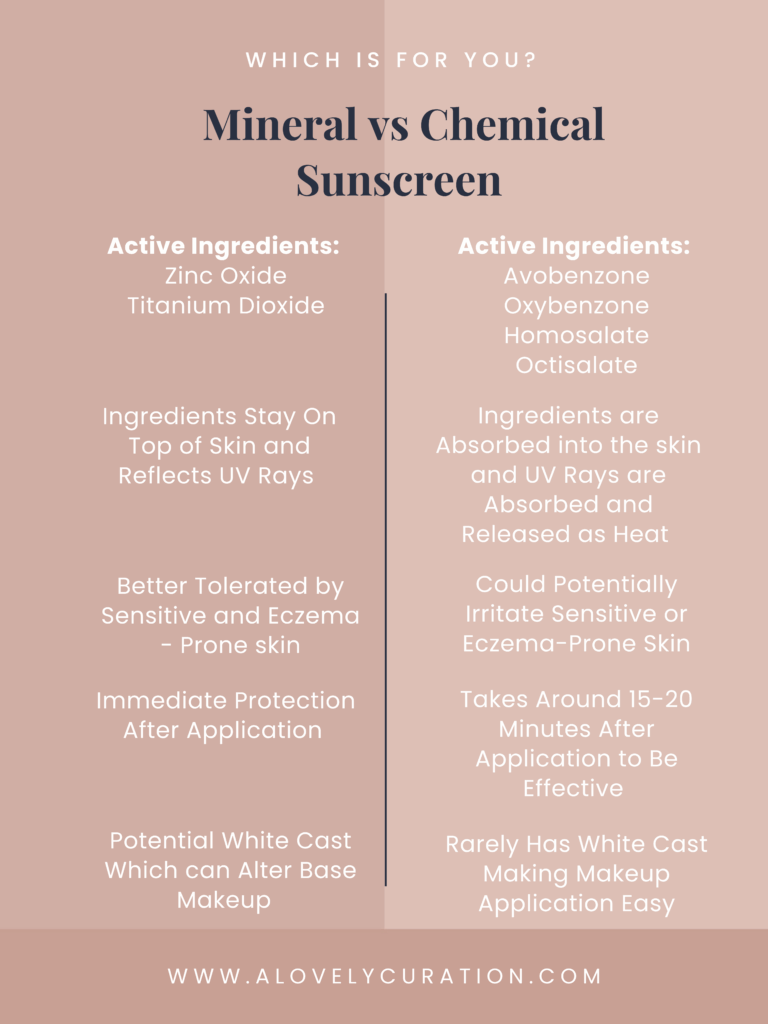
At the end of the day, the best sunscreen is the one you’ll actually use—consistently and generously. Whether you prefer the gentle protection of mineral formulas or the invisible finish of chemical sunscreens, the most important thing is finding what works for your skin, your routine, and your lifestyle.
Everyone’s skin is different, so don’t be afraid to try a few options and see how your skin responds. And if you’re shopping for little ones or dealing with sensitivity, starting with a mineral-based SPF is often a safe bet.
I’d love to hear from you—what’s your go-to sunscreen? Drop your favorites in the comments below or share your top picks with me on Pinterest or Instagram!

